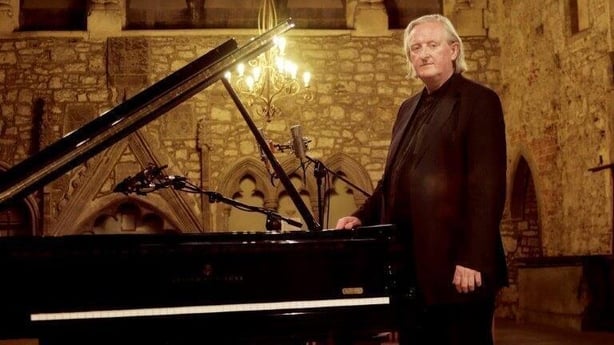As a cultural organization for film and film culture, the Irish Film Institute endeavours to screen its programme in a communal theatrical setting whenever possible.
While our online platforms, the IFI Archive Player, IFI @Home and IFI Schools are all important exhibition and educational tools, enabling us to share our collections widely and overcoming geographical barriers, we recognize the value of the communal cinematic experience. In an era where it has become common place to consume media in our homes or on mobile devices it is uniquely enriching to watch a film in a darkened theatre with an audience of like-minded cinema lovers.
However, presenting older films, or material not originally meant for a public audience comes with a number of exhibition challenges. While we want to share a broad range of the types of film we preserve in the IFI Archive, thus giving audiences the opportunity to experience moving image that exists outside the industry mainstream; but doing so requires careful preparation in order to do the films justice and ensure the audience can fully appreciate the experience.
Films that are silent, or mute can be challenging for an audience as people tend to become uncomfortable when sitting through film programmes that have no sound. Yet, many of the most interesting films in the IFI Archive were either created without sound, or their audio track has been lost over the years; however this is not an obstacle that prevents us screening them.
The IFI has a proud history of commissioning scores and working with musicians and composers to provide musical elements that enhance the visual content of the silent or mute films in our collection. Since the 1990s a cornucopia of distinguished composers and musicians have created unique cinematic events for the IFI, in a variety of settings. Using their talents to add an aural layer that not only underscores the visuals by adding to the drama, comedy or tension on screen but that also elevates the audience experience.

One of the IFI's earliest forays into this territory was when we commissioned renowned musician Mícheál Ó Súilleabháin to write a score for the 1926 film Irish Destiny, which had originally been made to mark the 10th anniversary of the Easter Rising. The score was debuted by the RTÉ Concert Orchestra at the National Concert Hall, Dublin in 1993. A reprise gala screening was staged in 2006, providing an opportunity for the accompaniment by the RTÉ Concert Orchestra to be recorded and released on DVD. Since that auspicious beginning, scores for other silent films have been commissioned from composers such as Niall Byrne and Eimear Noone.
Our colleagues in the Irish Film Programming department (led by Sunniva O’Flynn) have an impressive history of collaborating with Irish musicians to produce immensely popular cine-concerts both in the IFI, around the country and abroad. Musical collaborators in these endeavours have included Bottlenose Music, Aoife and Deirdre Granville, Toner Quinn and Deirdre Ní Chonghaile, Cormac De Barra and Rossa O Snodaigh & Colm O Snodaigh of Kila.
The IFI’s next cine-concert will bring together the talents of two experimental Irish artists. On the 21st of December we will proudly present a programme of filmmaker Flora Kerrigan’s work with a new score by avant-garde improvisational pianist Paul G. Smyth (formerly of the Jimmy Cake) and double bass virtuoso John Edwards.
A native of Cork, Kerrigan was active in the city’s Cine Society during the late 1950s and early 1960s before moving to the UK. Her small gauge, short-form films are highly experimental, utilising both live action and animation techniques to create witty yet poignant reflections on a variety of topics. She often employs a darkly comedic tone to explore her subjects which include power and authority, death and destruction, desire and female sexuality.
Join us for a FREE Ciné-concert celebrating the work of amateur filmmaker Flora Kerrigan!
— Irish Film Institute (@IFI_Dub) December 14, 2024
Music by renowned avant-garde free-improvisational pianist @paulgsmyth and double bass virtuoso John Edwards! 🎶
⏰15.30
📆 DEC 21st
🎟https://t.co/b80ZaZdhe5 pic.twitter.com/H05EyXiOGc
Flora’s talents as a filmmaker were recognised at the time she was active, with a programme of her films broadcast on RTÉ and an number of international awards to her credit. However, her work had been largely forgotten until it was rediscovered by Dr Sarah Arnold as part of a collaborative project between Maynooth University and the IFI Archive. The new score by Smyth was made possible with funding from the from ACE – Association des Cinémathèques Européennes and the EU Creative Europe MEDIA programme and allows us to premiere the restored films to a Dublin audience in a sonic environment sympathetic to Flora’s original unorthodox vision. Audiences further afield will be able to enjoy the programme with newly commissioned music early next year, on the IFI Archive Player.
The event is free but ticketed and tickets can be booked here.


